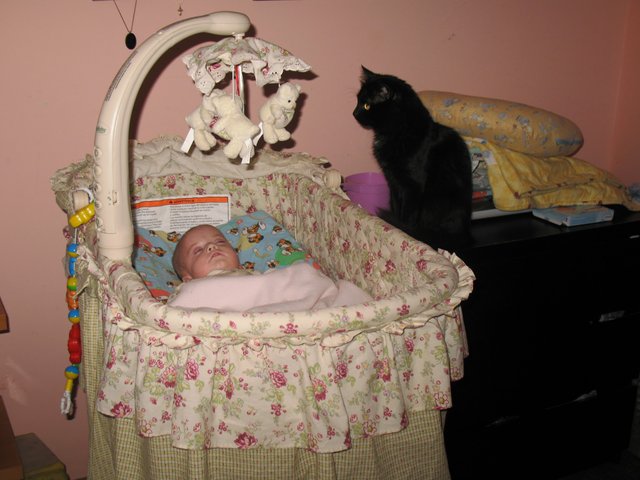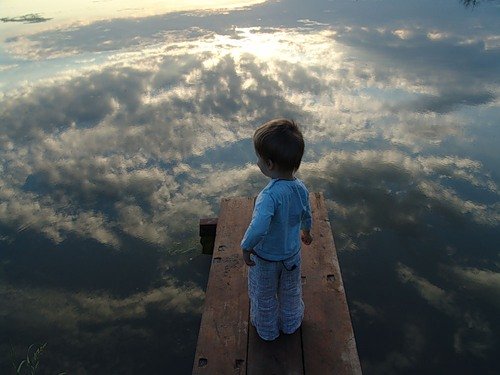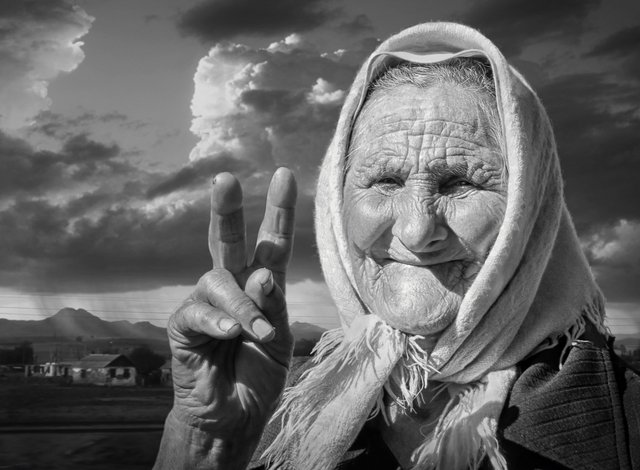What to Do if Your Kids Ask You about Death
Sorry for the sad topic but my daughter of 4 as soon as she started to talk she began to ask about her great grand parents and her grandfather and our cat who passed away .
It is a very sensitive topic how to tell kids about people or their close animals when they die.
She saw them on photos but she didn't see them in life. She saw only one of her great grandmothers who died when Emily was 3. I told my daughter that when people get old or if they are seriously ill they go to heaven. She was satisfied with that answer.

Some days ago she raised this topic again. We again discussed that all her great grand parents, her grandfather and the cat Gosha are in heaven. They look at her, pray for her and are happy to see that she is such a nice girl.
Emily: I don't want to get old
Me: Unfortunately, everybody will one day. That is life. And when they get very very old they will go to heaven
Emily: I don't want to get old((
me: Why?
Emily: I am afraid of height.
It made me smile.
What to tell about death
One of the most awful things that could happen if a child loses its mom or dad. What to tell? Should a child go to the funeral?
I think it could seriously traumatize a child and could even influence its whole life.
If your little kid asks when you die what he would do my feeling that it is important to show your calm attitude to it. Of course, you shouldn't tell that when people die they are burnt or buried in the ground and worms would eat their bodies. It is probably better to say that you would live long life and when the child would grow up, you would be very old and would be very tired and only after you would die. The adults shall try not to be nervous when discussing such topics.
Psychologists say that kids are interested in such questions rather early and the adults are afraid to discuss it and the kids stay alone with their thoughts. But if you discuss it and make them sure you will be around for many years to come kids will feel at ease and will know that they are not alone.
What to do in real life
So, what to do in real life when somebody in the family dies. Is it correct to tell that this person just went far away?
I have read one example concerning not a dramatic case as death but adoption. A child was adopted and that fact was hidden from the child. The parent brought that child to a psychologist as he had problems with memory, behaved bad etc. As a routine the psychologist asked the child to draw and the child was drawing a dark forest and himself. When he was asked where he was going his answer was that he was looking for a mom.
Then the psychologist asked if the child was adopted, the parents were very surprised how he knew. Children feel the untruth about himself inside. Emotionally that child felt that something was wrong but he was said that everything was fine. There are many such stories and they usually bring on neuroses, psychosomatic problems, social phobias etc. Adults try not to traumatize kids but they traumatize them even more. As we feel lies with our heart not our brain.
For religious people it is easier to tell kids about death. You can say that his dad went to God, he looks at him and prays for him. He is your friend, you can talk to him. For the atheists it is more difficult as what you can say about the person who passed away. It is the end. The connection is lost forever. For the kid it will be catastrophe.
No doubts the kid would blame dad or mom that he or she left him. And it is a very bad answer that God took him or her. In my opinion it is better say that the mom was ill and couldn't beat the disease, that mom didn't leave him, she is always with her child not with body but with soul.
Offence
But the pain will stay and and I think it is wrong to blame the child that he is angry with the mom. The psychologists say there will be several obligatory stages: denial, anger, offense, depression and blocking and only after this, acceptance.
With kids these stages take less time than with adults, so adults just need to support the child. We can say that he could talk to the late relative and write them letters. That kids will not get letters back but they could hear them. One child felt very sorry that his beloved grandmother died. But then he saw a dream that she was sitting on a cloud and smiling at him. Was it his soul trying to recover or God sent him that dream? It could be both. But the boy recovered.
Things that belonged to the people who died could help too. Like we could say that this is a cup your mom left to you in order you could always be with her.
Funeral
As for taking a child to funeral or not I guess it depends on the child. If he wants it is better to take him. But a dead body is always traumatic, so it is better to avoid it. And when you visit a grave and if the child asks where is grandmother, we could say that she is in heaven and the grave is a special memorial place.
I think it is also important that the adult and child experience grief together.
When we see a person who lost somebody close we need to share his pain. Not to tell him that everything will be fine, just hug and share his pain.
It is extremely difficult to talk about that and I hope my child or yours will never have to go through it. But we shall be ready for what to say as life is unpredictable. And I even don't want to think about that but my daughter keeps asking where her relatives and the cat Gosha are. And I see that I told her the right thing as now she can tell anybody rather easily about it and doesn't have any stress.

Yours, @aksinya.




it seems that for the most part each child is individual in how they understand or perceive death. When my husband died after an illness, his then 5 year old niece was told that her uncle was going to die and that he wouldn't be sick anymore. She didn't really ask where he was, she was happy he wouldn't be sick anymore.
She went to the funeral home to 'say goodbye'. She wasn't pushed but family was close by to be with her as she explored. Her mom took her to the grave after the interment.
Something I didn't know until a few months later when she was visiting and asked me why I wasn't doing any of her uncle's laundry. Rather than try to respond to that question I decided to ask her what she understood about what happened to her uncle.
"Well he was sick. Then he got dead and wasn't sick anymore. We buried him under a rock. " I just nodded and asked if she thought he needed his clothes washed and she said 'probably not'.
Sometimes we just need to let the child guide us at their level.
You are absolutely right and thank you for sharing the story. It is very interesting. It was also a good idea to say that her uncle wouldn't be sick anymore.
Excellent, thoughtful and thought-provoking post about a sensitive and challenging subject. I do not have kids but think if I did, I would agree with you that trying to shield them from the pain and discomfort of such things by "hiding" information is not the best idea in the long-term, but that the information needs to be presented very carefully so as not to scare the child. I haven't done any research on the subject though, so thanks for sharing yours.
Thank you very much for reading and sharing your opinion. Highly appreciated.
Children figure things out much better than we realize.
Most young kids are not traumatized by death, they are curious about it. the trauma comes from the way it is handled by adults.
I tried to help a friend's child out by writing a story for her to read to him.
It worked quite well. You can read it here.
One book that cured me of any fear of death is Reaper Man by Terry Pratchett.
How can you be afraid of someone who rides a white horse called Binky?
So my advice is to talk with kids about death, answer their questions truthfully and let them sort it out.
Nothing traumatizes more than finding out everything you believe in is a lie told to you by people you trusted.
Thank you very much! And you right. It is exactly what I wrote. Except the cases when very close person like mom and dad die. I think it will traumatize a kid in any case.(((((((((((( And the role of adults to have this trauma less.
Thank you for a fairy - tale))). It is very very nice and very well written. Do you publish your stories? Unfortunately, my daughter doesn't speak English. So, i will translate it for her. Thank you! Very good language and content.
Thank you for that.
I have more stories about Charlie Rabbit and Margery Mouse. Each one has a message to it.
If you translate my story could you please post it back up on Steemit and send me a link? I'd love to know that my story has been translated into another language. ;-)
You are welcome to keep the STEEM and SDB that you get for it.
I am hoping to one day put all the stories together and publish them as a book, but that will have to wait for a while.
I was thinking about translation your stories as they are really good! Of course I will mention you and send you a link. And good luck with a book!
That's awesome. Thanks you very much.
And if you want me to write any stories just for you and your daughter, I'm happy to. I've started writing some for @pappa-pepper. it's really fun to do.
Owo! It is great!!!!!!!!!! Yes, I have read comments of pappa - pepper. You are cool!
Hi @aksinya, I just stopped back to let you know your post was one of my favourite reads yesterday and I included it in my Steemit Ramble. You can read what I wrote about your post here.
Wow! It is a big honour for me!!!!!!!!!! Thank you sooo much!!!!!!!!!!!!!! You made my day!
Well, glad to make your day :) Have a steem on day
Outrageus post my friend, i like the way you compose your thaughts in this text.Upvoted
Thank you very much!!!!!!!!!!!!